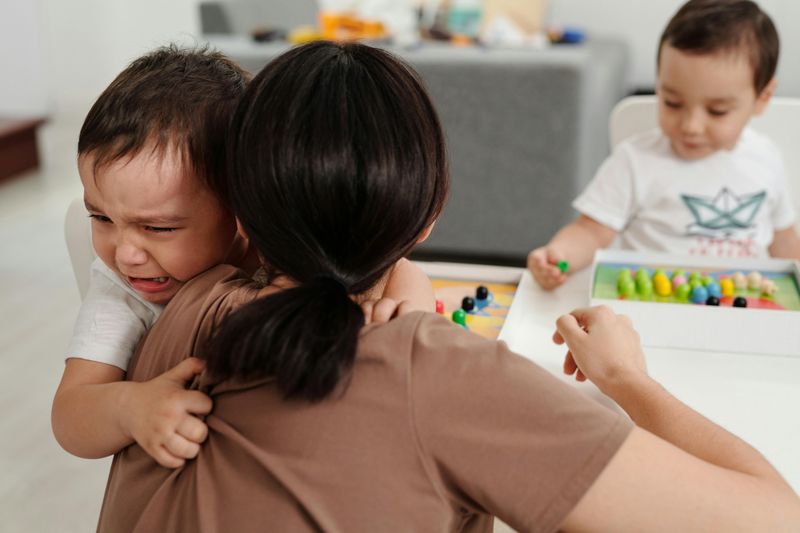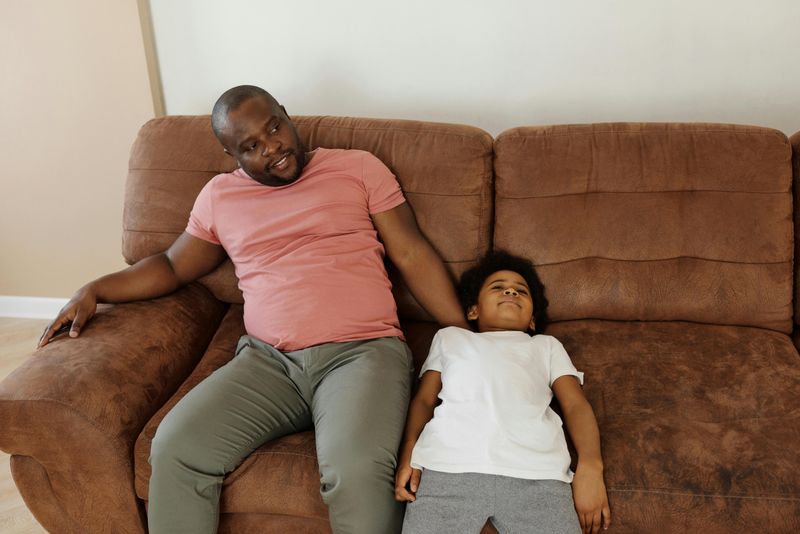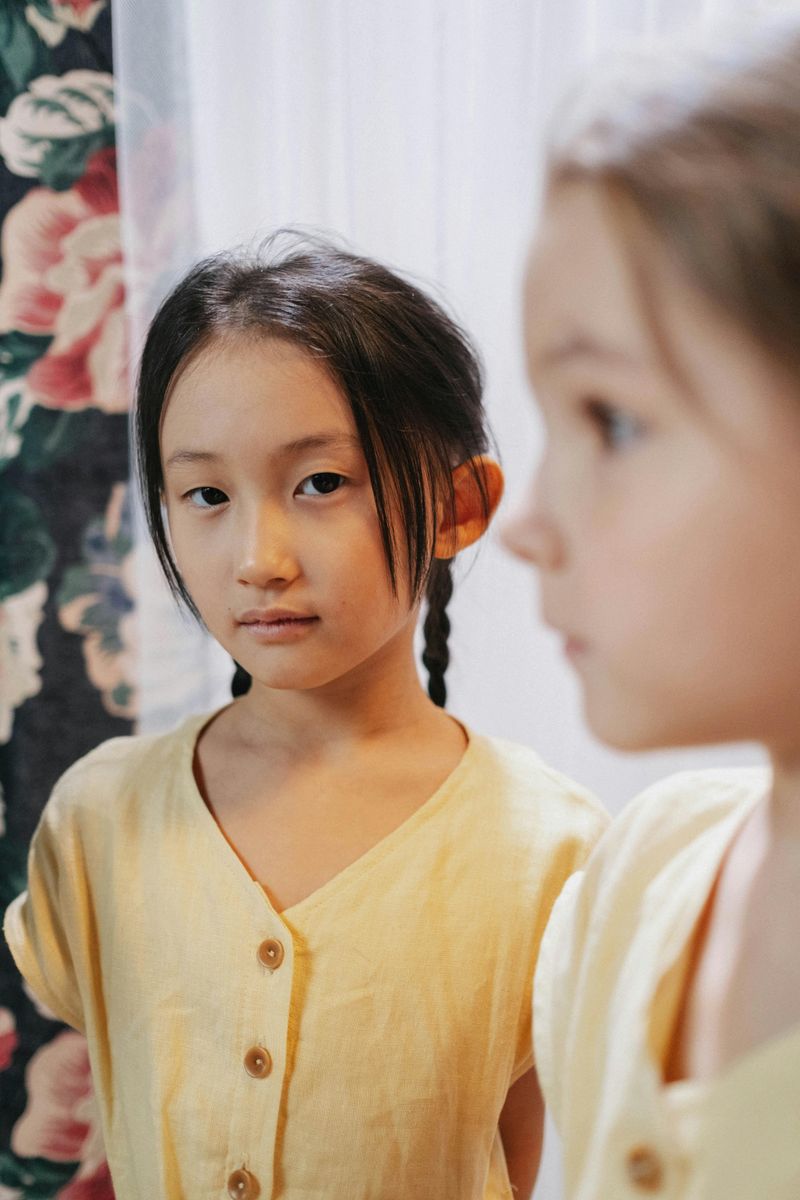15 Common Parenting Phrases That Break Your Child’s Spirit Every Time

Words hold immense power, especially when they come from parents. The phrases we casually toss at our children can either nurture their confidence or slowly chip away at their self-worth. Many of us repeat sayings we heard growing up without realizing their lasting impact on developing minds. Understanding which common expressions hurt rather than help can transform your relationship with your child and protect their emotional well-being.
1. “You’re overreacting.”

Children experience emotions intensely because they’re still developing emotional regulation skills. When parents dismiss these feelings as an overreaction, kids learn their emotions aren’t valid or important.
This phrase teaches children to doubt their own experiences and internal signals. Over time, they may stop sharing feelings altogether, creating a communication barrier between parent and child.
Instead, try: “I see you’re feeling upset. Can you help me understand what’s happening?” This validates their experience while opening a conversation about proportionate responses.
2. “Why can’t you be more like your sibling?”

Comparisons between siblings plant seeds of rivalry that can grow into lifelong resentment. Each child has unique strengths, weaknesses, and personality traits that deserve celebration rather than criticism.
When parents constantly compare, children internalize the message that they’re fundamentally lacking. Their sibling becomes both a standard they can’t reach and an obstacle to parental love.
A better approach: “I notice you’re really good at drawing. Your brother is good at math, and you each have special talents.” This acknowledges individual gifts without creating a competition.
3. “I don’t have time for this right now.”

While parents genuinely get busy, repeatedly brushing children off with this phrase teaches them their concerns rank low on the priority list. Kids internalize the belief that they’re a burden rather than important family members.
The timing of a child’s needs rarely aligns perfectly with a parent’s schedule. However, how we respond to these moments shapes their sense of worth and security in the relationship.
Try instead: “I need to finish this task, but I can give you my full attention in 10 minutes. Is that okay?” This acknowledges both your limits and their importance.
4. “Stop crying.”

When children are told not to cry, they don’t stop feeling—they just stop expressing. Over time, this can lead to emotional disconnection and confusion.
Boys especially suffer from this command, often hearing additions like “be a man” that compound the damage. This emotional suppression can lead to difficulty identifying and expressing feelings throughout life.
A gentler alternative: “It’s okay to cry when you’re sad. I’m here with you while you feel these big emotions.” This teaches that emotions are natural and manageable rather than shameful.
5. “You always… / You never…”

Absolute statements like these create fixed identities that children struggle to break free from. A child labeled as “always forgetting homework” begins to see forgetfulness as an unchangeable trait rather than a behavior to improve.
These phrases ignore progress and effort, focusing only on failures. Children need recognition of their attempts to grow, even when results aren’t perfect.
Instead, try: “I noticed your homework wasn’t in your backpack today. What might help you remember tomorrow?” This addresses the specific instance without defining the child by the behavior.
6. “You’re so lazy.”

Character attacks cut deeper than criticism of specific actions. When children hear they ARE lazy (rather than they ACTED lazily in a specific situation), they incorporate this trait into their identity.
Many behaviors adults label as laziness stem from other issues: overwhelm, lack of skills, fear of failure, or even learning differences. The label prevents discovering and addressing the real problems.
A constructive alternative: “I notice you haven’t started your project yet. What’s making this task difficult to begin?” This invites problem-solving rather than shame.
7. “I’m disappointed in you.”

The weight of parental disappointment is heavy for a child. They may not hear correction—they feel distance, as if love is being pulled away.
This phrase often creates people-pleasers who base their worth on others’ approval. Children become afraid to make mistakes, which ironically hampers growth and learning.
A healthier expression: “I feel sad about the choice you made, but I still love you completely. Let’s talk about what happened.” This separates the behavior from the child’s inherent value and worth.
8. “Because I said so.”

Curiosity is how children make sense of life. Responding with “because I said so” shuts the door on learning and discourages deeper thought.
This phrase teaches obedience through power rather than reasoning. While convenient in the moment, it fails to help children develop the ability to make good decisions based on understanding consequences.
Try instead: “We don’t run by the pool because wet surfaces are slippery and you could hit your head if you fall.” Even brief explanations help children build logical connections and internalize important rules.
9. “You’ll never learn.”

Believing that ability grows with practice fuels success. When parents suggest learning is beyond reach, they unintentionally plant doubt that becomes reality.
Children who hear this message repeatedly stop trying because effort seems pointless. The brain actually forms fewer connections when we believe improvement is impossible.
A supportive alternative: “This is tricky, but I’ve seen you stick with hard things before. What part are you finding most difficult?” This acknowledges struggle while expressing confidence in their ability to overcome it.
10. “You’re too sensitive.”

Sensitivity isn’t something to fix—it’s part of who some children are. When it’s labeled negatively, it damages their ability to feel safe in their own skin.
Many sensitive children already feel different from peers. Parental criticism of this trait compounds their struggle and teaches them to hide their authentic selves.
A validating response instead: “You notice details others might miss. That sensitivity helps you create beautiful art and be a caring friend.” This reframes sensitivity as a strength with real benefits rather than a flaw to overcome.
11. “You should be ashamed.”

Shame is one of our most painful emotions, creating the belief that we are fundamentally flawed rather than that we made a mistake. Children who experience frequent shame develop poor self-image and struggle with healthy relationships.
Guilt (“I did something bad”) motivates positive change. Shame (“I am bad”) creates hiding behaviors and disconnection from others.
A constructive approach: “That choice hurt someone else. How do you think we can make things better?” This focuses on responsibility and repair rather than character condemnation.
12. “I wish you were more like…”

No two children are the same—and they’re not meant to be. When parents long for a different version of their child, it sends the painful message that love depends on being someone else.
This phrase creates a phantom ideal child that the real child can never become. The gap between this ideal and reality becomes a source of ongoing pain and inadequacy feelings.
A loving alternative: “I love watching you develop your own interests and style. Tell me more about why you enjoy this hobby.” This celebrates their individuality rather than wishing it away.
13. “You’ll never amount to anything.”

What parents say about a child’s abilities becomes part of that child’s inner voice. A careless, discouraging phrase can echo for decades, limiting what they believe is possible.
Many successful adults still hear these words echoing in moments of challenge, creating unnecessary barriers to achievement. The prediction becomes a heavy weight children carry as they try to move forward.
An encouraging alternative: “This is a setback, but it doesn’t define your future. I believe in your ability to learn from this experience.” This acknowledges current struggles while maintaining faith in future possibilities.
14. “Big kids don’t act that way.”

Child development follows natural progressions that can’t be rushed by shame or pressure. When parents use age as a weapon, children feel wrong for being exactly where they should be developmentally.
This phrase creates artificial timelines for emotional maturity that ignore individual differences. Children may hide normal feelings and needs to appear “big” rather than processing them healthily.
A developmental approach: “It’s normal to feel scared/sad/angry sometimes, no matter how old you are. Even grown-ups have big feelings.” This normalizes emotions across ages while still teaching appropriate expression.
15. “Wait until your father/mother gets home.”

This threat transforms the other parent into a punishment delivery system rather than a loving caregiver. It creates fear and anxiety that build as the child waits for the dreaded homecoming.
This approach undermines both parents – one appears powerless to handle situations, while the other becomes feared rather than trusted. The family becomes divided rather than united in guiding the child.
A united approach: “We need to discuss what happened together as a family later. For now, let’s take some time to calm down.” This maintains authority while removing fear and establishing problem-solving as a family value.

Comments
Loading…